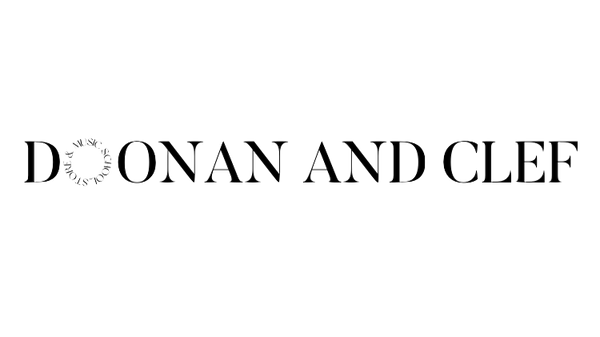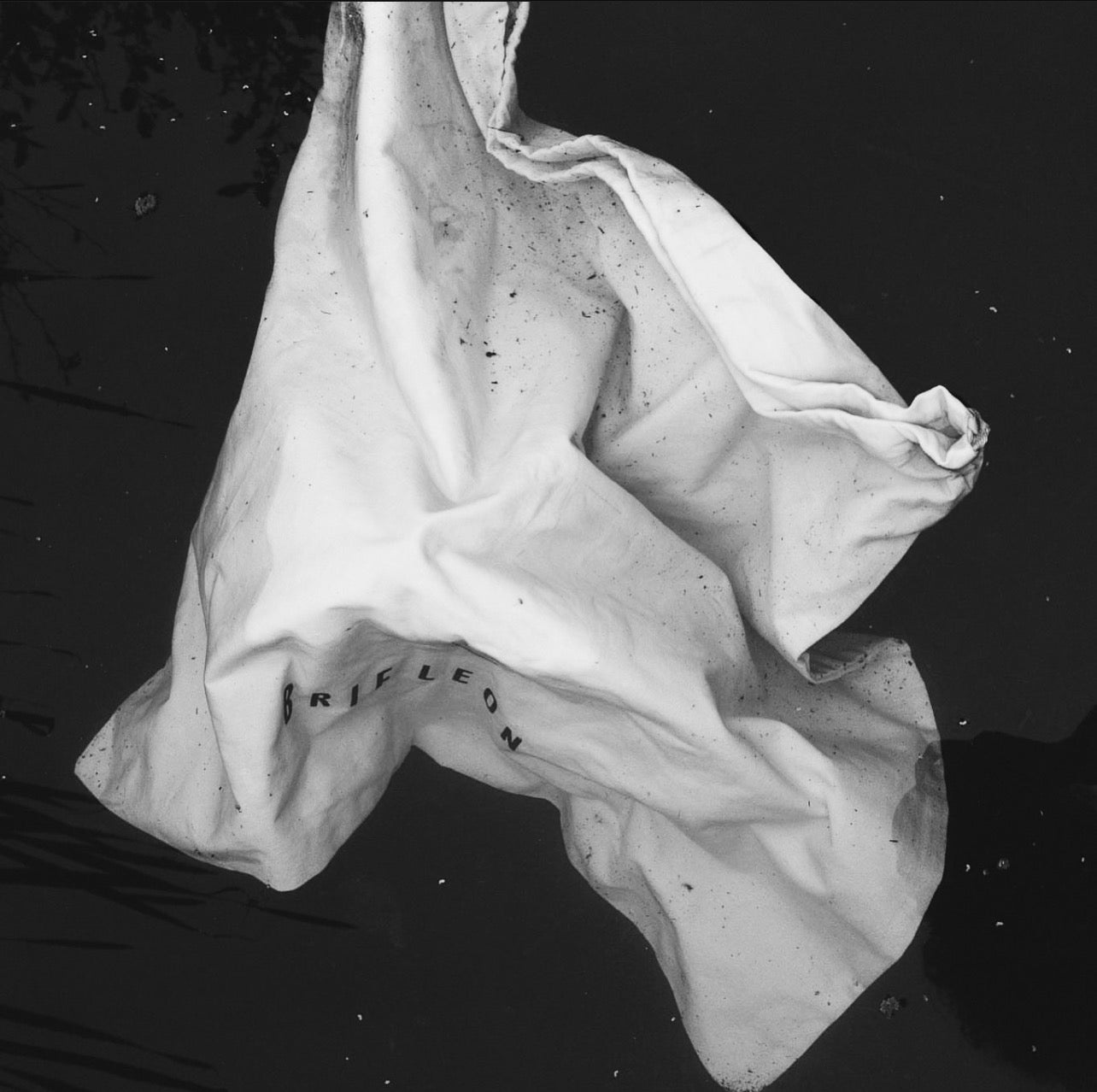
Sustainability & Responsibility
Our powerful responsibility of caring for the environment is always our priority. From the compostable & recyclable packaging our products are sent in, our daily practices in and out of the workplace and each and every brand we choose to bring into Doonan & Clef; we lead by example so our community can follow.
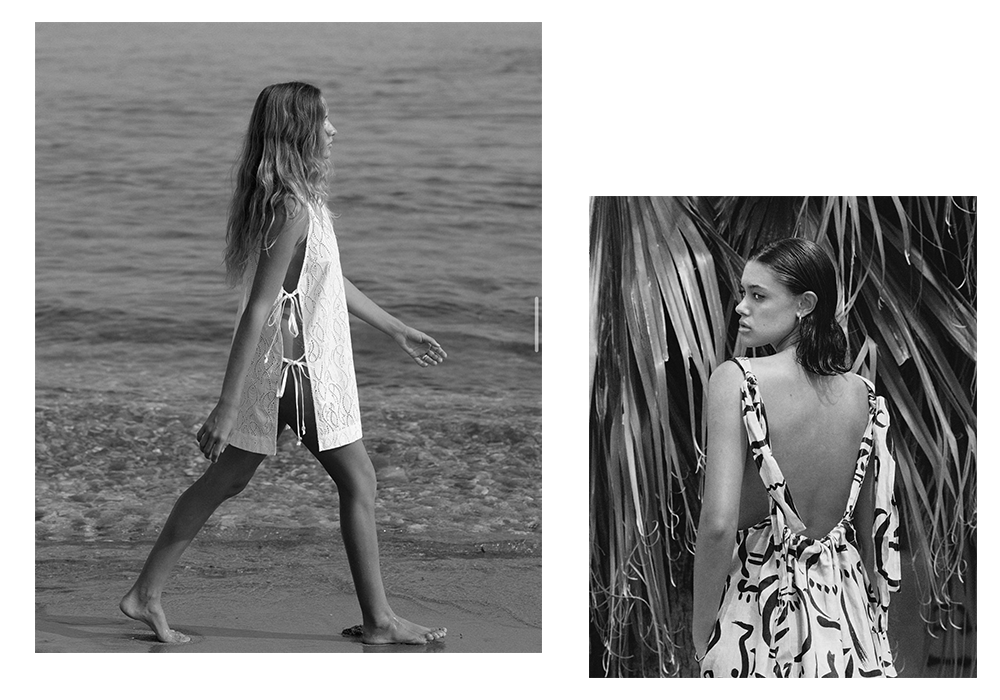
SOLEIL SOLEIL
As designers, Soleil Soleil are completely responsible for the creations they bring to fruition. Every single item they put out to the world makes an impact, and Soleil Soleil know that they have to be accountable for that. They take this responsibility very seriously, and carefully consider every step of the journey each piece takes, from initial concept to final product. Soleil Soleil have spent a lot of time bringing their pieces to life in environmentally conscious and ethical circumstances. Soleil Soleil believe they have found the balance between designs that are produced from earth-friendly materials, while also being high-quality pieces that will stand the test of time. They aim to create products that you will love forever—and will last you that long too! Buy less, choose carefully and shop consciously.
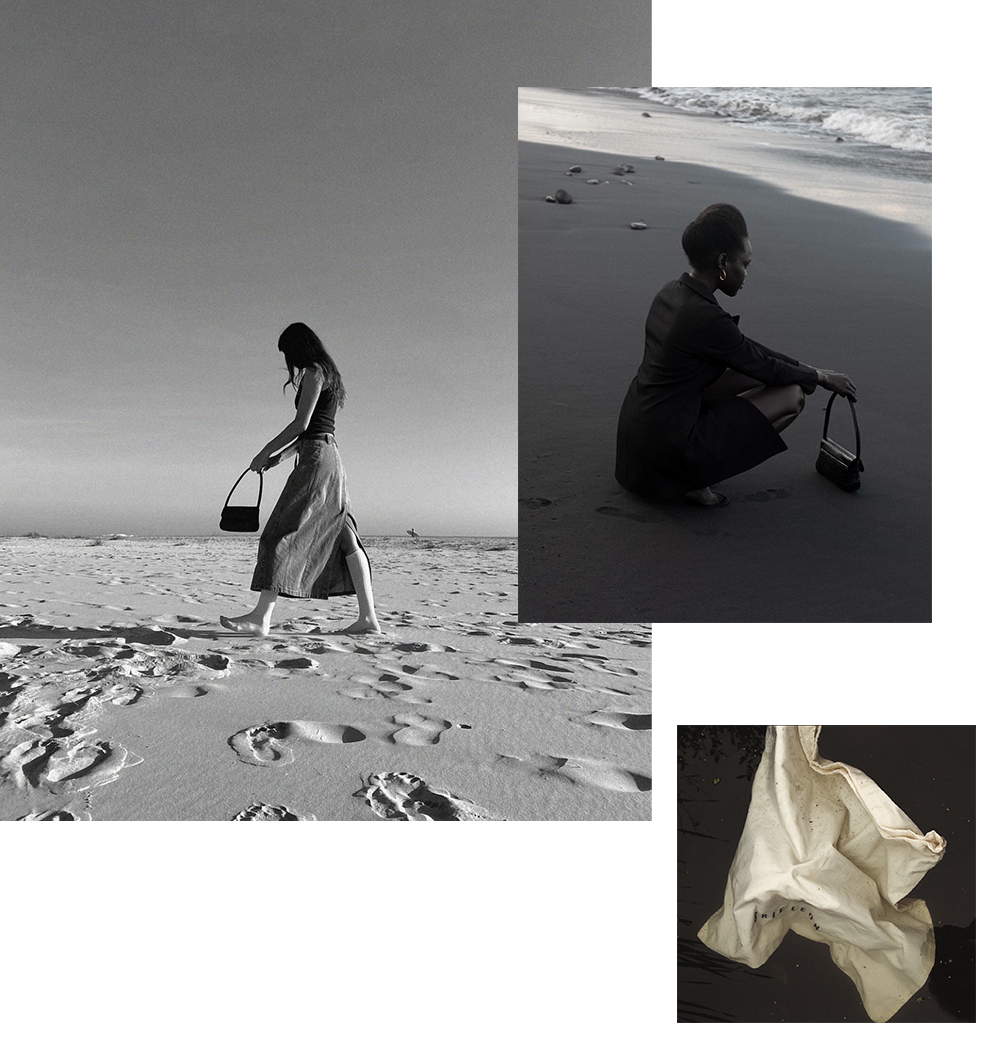
BRIE LEON
Brie Leon focuses on pieces being designed for everyday wear, ensuring each piece is made to be treasured and last. Brie Leon release two collections a year, opposed to four like most fashion labels and are currently transitioning to a ‘made to order’ wholesale business model to minimise over production and dead stock, avoiding unnecessary material waste.
Brie Leon's annual market sale ensures that absolutely no samples go to waste, making sure every product made is re-homed to be used and loved. This includes faulty returns which are repaired locally rather than disposing them into landfill. Brie Leon's jewellery is re-plated and sold if possible, also working on recycling sterling silver metals to become a more circular business. Packaging is one of Brie Leon's major sustainability focus points, believing every brand can make the switch towards using environmental packaging materials. Using recyclable Kraft card for mailers, un-bleached kraft paper, paper gum tape and post-consumer recycled post-cards, swing tags, info cards and sustainability info tags to pack orders. Brie Leon's jewellery pouches are created using un-bleached calico with no contaminants being leaked into the waterways during the process and popped in recyclable boxes. They don’t want to be known as another PU brand, because they're not. Many of Brie Leon's designs are made using recycled or alternative sustainable materials and this number is increasing each collection. Their aim is to fully eliminate virgin materials for all handbags and only work with ethical or post-consumer recycled fabrics. Brie Leon are minimising their handbag packaging where possible and trying hard to avoid single-use plastics by transitioning to corn-starch compostable protective packaging.
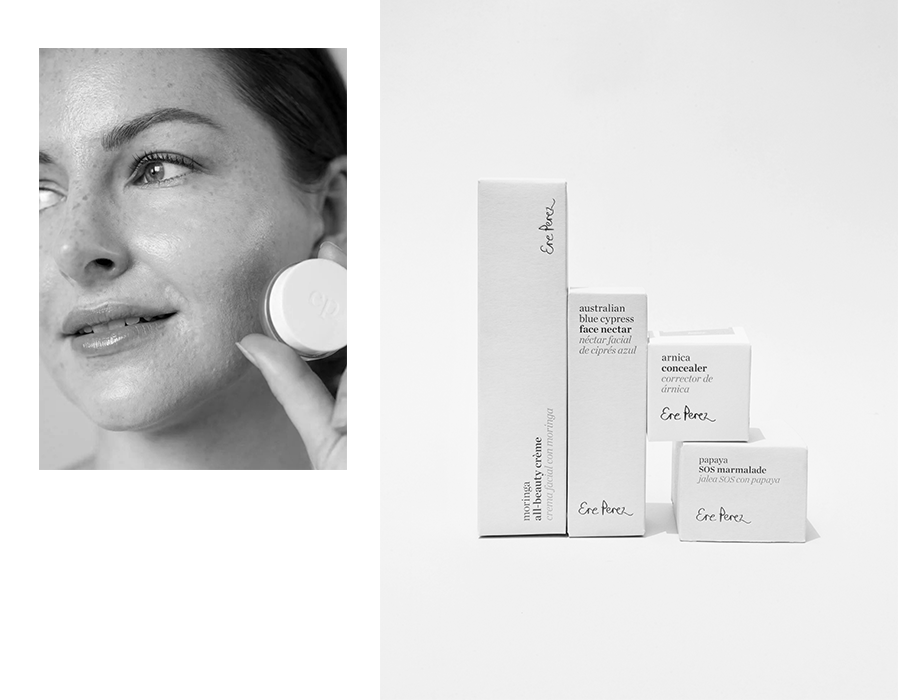
ERE PEREZ
Ere Perez are leaders in sustainable beauty. Creating refillable products that replace an insert pan into your existing product so you can save the planet from the extra packaging. Mono materials relate to single ingredient pieces such as 100% glass, carton or aluminium. This allows for easier dismantling and recycling of packaging elements. Items designed with as minimal impact on the environment as possible with as little being thrown away in the life cycle of the product. Including recyclable packaging and biomaterials. They aim to use a mix of PCR (post-consumer recycled) and recyclable plastics depending on the components of each product. Ere Perez chose the most sustainable option. Choosing ingredients that are potent & nutritive but widely available. Avoiding ingredients that are rare or under threat from over-production. Creating formulas rich in plant-based skin nutrition but free from unwanted harsh chemicals. One product with many uses! By choosing a multitasker like a 2-in-1 or even 3-in-1, a lot of materials and resources are saved. Replacing plastic in product packaging with an infinitely recyclable material like glass/aluminium. Using plastic-free biodegradable/compostable materials for postage and shipping. Ere Perez has been certified carbon neutral since 2016, offsetting their carbon from all elements of production to contribute to positive sustainable initiatives.
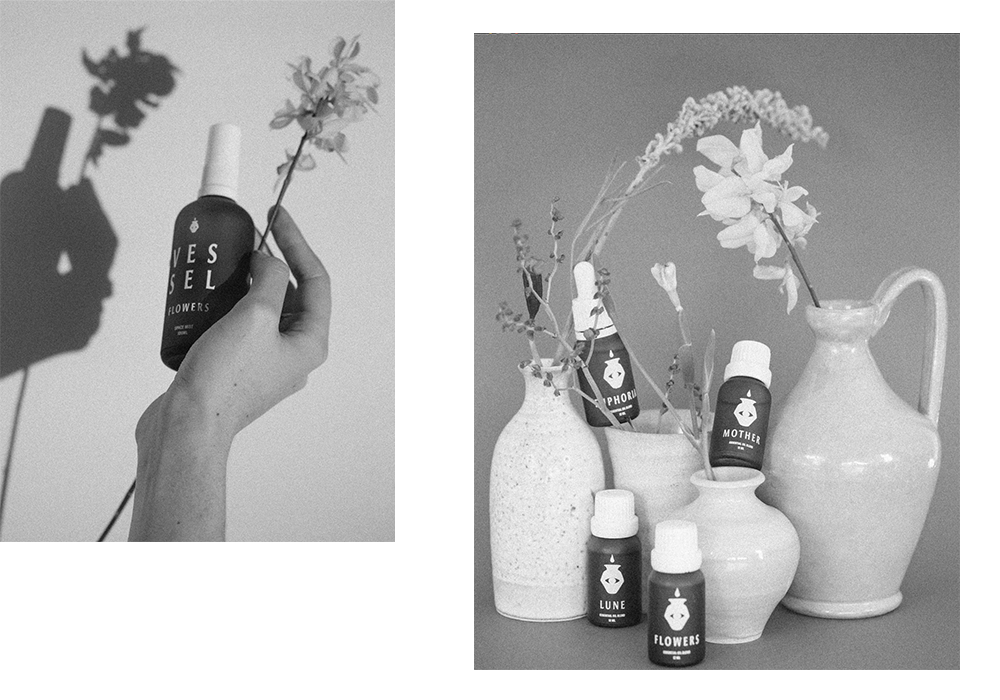
HAPPY SOCIETY
Happy Society is a collection of natural fragrances and unique herbal blends to encourage positive, healthy daily rituals. Happy Society’s unique range of herbal blends are lovingly and carefully blended by hand in their studio located in Geelong, Victoria using ingredients sourced locally and from fair trade communities around the world.
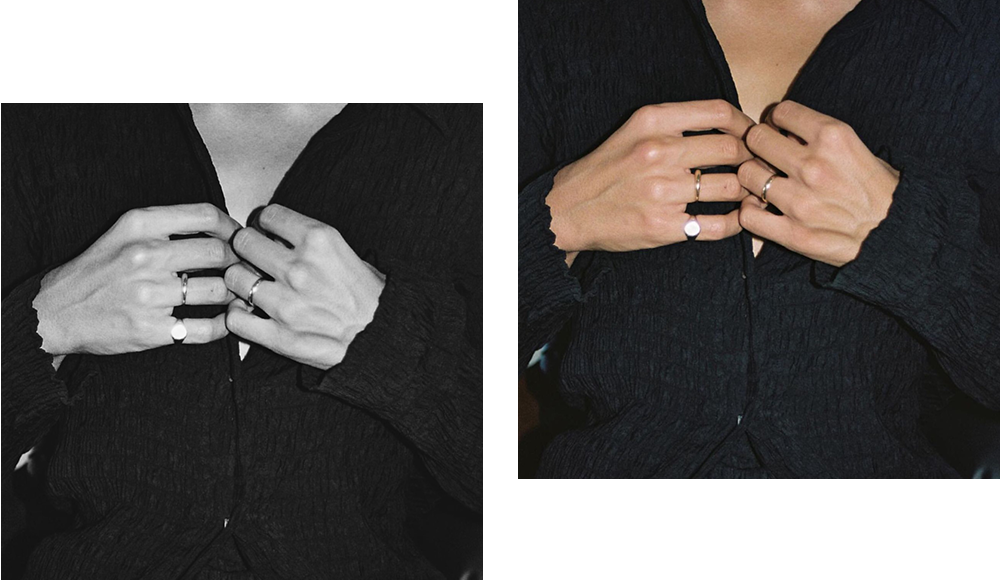
HYDE & STONE
Hyde & Stone’s approach to sustainability is considered, based on timeless design, ethical manufacturing and natural textiles. Committed to Australian made manufacturing only to ensure less waste on the environment. Timeless pieces, designed to become a wardrobe staple, a well-made garment that will remain in your wardrobe for years.
-

AUTARK
Autark take the choice of fabric for their garments very seriously. The use of 100% natural fibres ensures both comfort for the wearer's skin and minimises the devastating impact of synthetic microfibers when laundering. Natural fibres are also a renewable resource and are biodegradable at the end of their lifecycle. Autark utilise dead stock fabric and/or organic fibers for all designs in their current collection. Deadstock fabric is an excess product of the fashion industry, and when not utilised may end up being thrown away. It is a joy for Autark to be able to breathe new life into these exquisite fibres.
--
-

DEL VILLAR
Del Villar is a slow fashion label grounded in Byron Bay. Del Villar's minimalist ready-to-wear collections are classic staples that fully express their conscientious design ethos. Taking inspiration from the versatility and timelessness of minimalism, Del Villar brings a focus on contemporary fit, natural fabrics, and meticulous construction to each of their designs.
--
Shop the Brand
-

SALT & STONE
To honour Salt & Stone's connection with the ocean they turn to ingredients derived from the sea. They start with one of the most nutrient-dense and diverse living systems of the ocean - seaweed. Their formulas underscore skin health in harmony with nature. To honour nature, Salt & Stone consider their relationship to the planet in every stage of their business. They are committed to leaving no trace of their products or brand in the environment. Recyclable packaging is just table stakes - they incorporate up-cycled ocean plastics and other recycled, biodegradable materials in their containers. Salt & Stone use Eco Smart technology, which is biodegradable in days, not decades. Lastly, their products are manufactured by renewable solar and hydroelectric energy.
--
-

ANN STUDIO
ANN studio creates handmade, natural beeswax candles in the Byron Bay area. ANN studio with the want to make purpose-led products, to mindfully create pieces not just beautiful to look at but beneficial and natural. ANN candles are made with only 100% pure Australian beeswax, they burn clean with a subtle honey scent and are virtually smoke free.
--
-

NAKED TALLOW
Naked Tallow's suet is sourced from local organic farmers in the Sunshine Coast hinterland. It is then rendered at a low temperature to preserve the integrity of enzymes and nutrients. Because it has a naturally long shelf life there are no added preservatives or chemicals, keeping it pure and naked.
--
